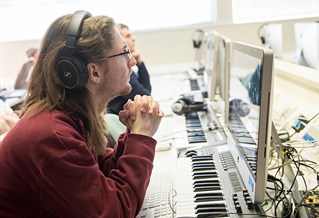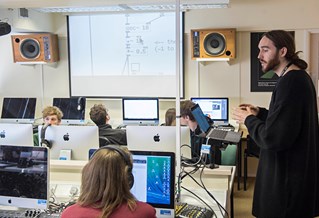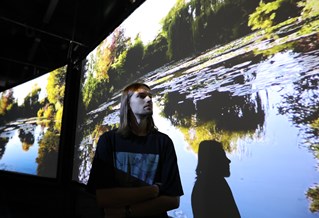
Specialist equipment and facilities
Students studying digital music have access to facilities including surround sound studios, a two-channel sound studio, recording booths synced to sound studios, a dedicated computer suite, electronic mash-up workshop area, multi-channel AV sound diffusion lab, field recording equipment and specialist software.

Vocational and creative
Both sound and music degree courses are excellent preparation for careers in the music industry. You will have opportunities to showcase your work, and on the media course you will work on live projects and go on a four-week industry placement.

Join a vibrant artistic community
As a student in our School of Art and Media you will be part of a large community of creatives studying subjects from design to fine art, photography to fashion.